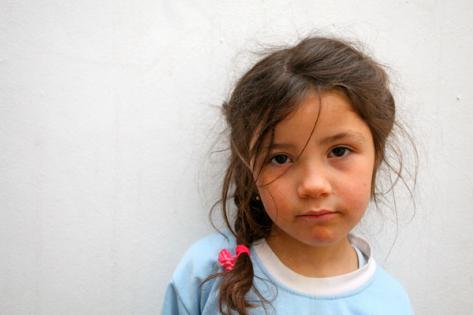UNICEF Ambassador Lucy Liu traveled to Lebanon with UNICEF last week to see first-hand the dire situation for Syrian children and their families who have fled a crisis that has left more than 70,000 people dead and nearly six million displaced from their homes.
Accompanied by UNICEF staff, Liu visited makeshift settlements in the Bekaa region of Lebanon, the country that hosts the largest number of Syrian refugees in the world.
Up to one million people are in urgent need of humanitarian assistance in Lebanon, half of whom are children. The number of those arriving from Syria is growing dramatically, with more than 100,000 crossing the border each month. The resources of Lebanese host communities, the Government, and humanitarian organisations are being stretched to the limit.
"The camps I visited are severely under-served. We met families living in make-shift tents constructed of burlap sacks and plastic sheets. With no water or toilets, open trenches serve as latrines, and diarrhoea cases are rising. Many children have scabies, lice and fleas," said Liu, a UNICEF Ambassador since 2004.
She has previously visited Russia, Peru, Pakistan, Egypt, the Democratic Republic of Congo, Cote d'Ivoire, and Lesotho with UNICEF.
"I saw children playing in waste, in rubble. They are desperate to go to school."
UNICEF has warned that the Syrian conflict risks creating a "lost generation" of millions of children who will carry physical and emotional scars of this conflict for many years to come.
Children arriving from Syria have fled for their lives, often with nothing more than the clothes on their backs. More than 40% of children from Syria are of school age; many have missed months or even years of learning. In Lebanon, some 150,000 Syrian children are not in school, and that number is expected to rise to more than 400,000 by the end of the year. Public schools are coming close to reaching a saturation point.
Displaced children have experienced and witnessed unspeakable violence - the death or injury of relatives, neighbours and friends - or have been exposed to harrowing scenes of destruction. These experiences can significantly impact children's psychological and social wellbeing and development, both in the short- and long-term.
"Every child deserves a childhood. These children need nutrition, medical care and education," said Liu. "I am asking people to find out about this crisis and to please help them."
In Lebanon, UNICEF is assisting refugees from Syria, as well as the poorest Lebanese host communities.
UNICEF has scaled up its programs in education, protection, health and nutrition, and water, sanitation and hygiene to respond to urgent needs.
It is working to get the most vulnerable children back to school in a safe, protective environment; supporting the health care system with immunisation services and life-saving medical supplies and essential medicines; providing psychological support to children so they can begin to regain a sense of normalcy; facilitating access to safe drinking water and sanitation; and supporting programs to prevent violence against women and girls.
The growing number of refugees, affected communities, and the lack of a foreseeable political resolution to the crisis will require enormous resources to meet the needs of the population. UNICEF's emergency response remains significantly underfunded.
To make a tax deductible donation, visit UNICEF Australia. As a guide, a donation of:
- $50 buys necessary clothes and blankets
- $100 buys 122 exercise books and 1,818 pencils, and
- $200 buys 7,500 high-energy biscuits to help children suffering from malnutrition.
Watch this video message from Lucy Liu.

















__small.png)










